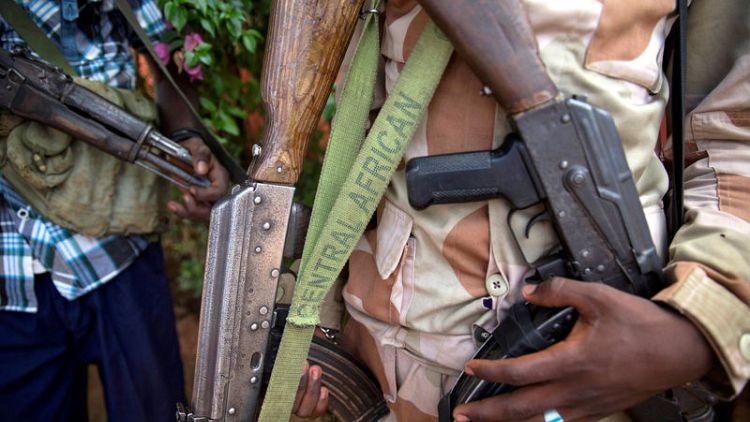By Aaron Ross
DAKAR (Reuters) - Deliveries of Russian weapons to Central African Republic's security forces this year have pushed rebel groups to bolster their own stockpiles as they consolidate control over large parts of the country, a U.N. panel of experts said on Friday.
Central African Republic has been battered by violence since 2013 when mainly Muslim Selaka rebels ousted then president Francois Bozize, prompting reprisals from mostly Christian militias.
Despite Faustin-Archange Touadera's election as president in 2016 and the deployment of thousands of U.N. peacekeepers, most of the country remains beyond the control of the Bangui government.
The U.N. Security Council granted Russia an exemption to Central African Republic's arms embargo in December to allow it to provide light arms to government forces and send military and civilian instructors to train them.
"The recent acquisition of weaponry by the Government has created an incentive for the active rearmament of ex-Selaka factions," a report by U.N. sanctions monitors said.
"Armed group elements told the Panel that, since the Government had opted for the military option (training, rearming and attacking) instead of the political process, armed groups needed to be prepared."
The militia's new stocks of high-powered assault weapons are believed to mostly come from neighbouring Sudan, the report said.
A spokesman for Central African Republic's government said he had no immediate comment. Russia's U.N. mission did not immediately respond to a request for comment.
Overall, the report said, security has deteriorated this year in parts of the country where improvements had previously been reported, including the capital Bangui and the town of Bambari, about 250 km (155 miles) to the northeast.
A joint operation by U.N. peacekeepers and national security forces in early April to flush out armed groups in Bangui helped spark violence that killed 70 people and wounded 330 more, the worst one-month period in the capital since 2014, it said.
The U.N. peacekeeping mission, known as MINUSCA, did not respond immediately to a request for comment.
(Editing by Andrew Heavens)
